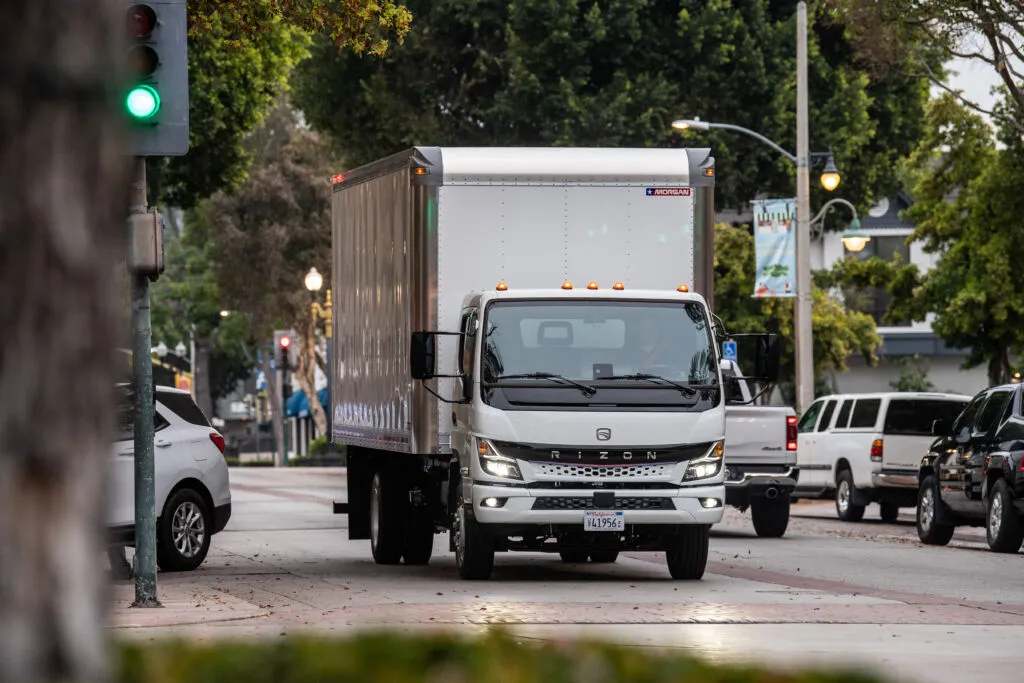When winter falls across the northern United States and Canada, there is always one reliable topic of conversation wherever you find yourself – the weather! Abnormally warm or frigidly cold, you’ve always got something to talk about. But when those winter temperatures descend, what’s the impact on an electric vehicle (EV)?
As more people and businesses turn to EVs to meet their needs, it is important for adopters to understand the factors that impact battery range. Cold weather is one of those factors, but the good news is there are ways to reduce its impact!
Here’s a quick look at two other factors that affect your EV range:
- Payload – If you’re carrying a heavy load, it requires more energy to move it. That logic applies whether you’re moving a couch in your house or moving goods down a highway in a Class 4/5 truck.
- Driver behavior – How a driver handles an EV matters to your battery range. When drivers travel at optimal speeds and when choices can be made to avoid hills or many stops and starts along a route, your EV range improves.
How cold weather impacts EV range
Cold weather impacts the range of your EV in two key ways that are very much related:
- The temperature itself reduces performance – Vehicles generally prefer the same type of temperatures we do as people, so when the thermometer dips below freezing (32 degrees Fahrenheit or 0 degrees Celsius), an EV battery will lose range. The same holds true on those hot summer days, too. If the temperature is soaring (90+ degrees Fahrenheit or 32+ degrees Celsius), you’ll notice that your battery range is less than normal.
- The temperature changes driver behavior – What’s the first thing you do when you get in a cold vehicle? Turn on the heat! In an electric vehicle, the heater draws energy from the battery, meaning that its performance will be less than optimal, particularly if the heater is on full blast.
Reducing the impacts of cold weather on your EV range
When it comes to reducing the impact of cold weather on an electric fleet, planning and driver training are critical.
- Plan your routes – For many uses, commercial EVs can complete trips on a single charge, regardless of weather. This is particularly true in urban areas. If your business requires longer distance travel, knowing the local charging infrastructure that supports your routes helps ensure drivers always have a place to charge up, no matter what the temperature is outside.
- Plan your operations around a full charge – Making sure your trucks are fully charged before drivers hit the road is important to ensuring you have the battery’s full range available for use.
- Train your drivers on how to optimize range – Ensure your drivers know what optimal travel speeds are for their vehicle. Help them select routes that have less start-and-stop traffic patterns and fewer inclines. Have them travel prepared for any weather so that they can rely on a jacket and other winter wear over putting the heat on full blast. Using the heated seat or steering wheel is also a good alternative.
RIZON knows cold weather
We know how important the adoption of electric vehicles will be in all areas of North America, not just the hot spots. Our RIZON electric trucks, developed by the Daimler Truck Group, are built to be cold climate ready, with battery precondition features that warm the battery while the vehicle charges on AC. The interior cab can also be warmed up cost-effectively, with a PTC heater featuring an output control function, a temperature control dial and cut switch, in addition to power-saving heating and defrost functions.
Learn more about the RIZON electric truck models at www.rizontruck.com. Velocity Truck Centers are your exclusive distributor of RIZON trucks in Canada and the United States. Contact us here in Canada to talk about your options or visit Velocity Truck Center to find your local dealer, schedule a test drive or talk about purchase and financing opportunities.
